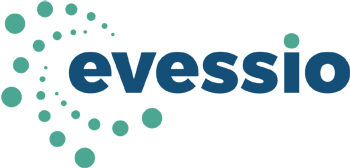
“Your event software should do two things,” says Gary Clement, CEO and co-founder of specialist event software developer Evessio: “It should make you more efficient and enable you to increase revenue.”
Evessio is the developer of software dedicated to the events sector and has a large customer base among UK publishers. The event might be an awards ceremony, conference, exhibition, or as is increasingly the case, blended events incorporating elements of each.
Gary started his career in publishing in the nineties as an ad designer. Since then, he has primarily worked in software development, specialising in the events sector, which was really starting to take off in the nineties.
In 2016, Gary joined forces with technology expert Paul Schnell to set up a new company, with a mission to create an event management platform fit for the digital age. The new system would draw on Gary’s long experience in the events sector, would meet the requirements of modern digital publishers, and would be built on a modern, flexible and scalable tech stack.
Their ambition was simple: for Evessio to be the number one event management platform for the publishing industry. Thomas joined the company as COO in 2017 to help make that happen.
Progress has been good and there are already a number of well-known publishers using the Evessio system, including Dennis, Incisive Media, Emap, William Reed, Media 10 and the PPA.
Gary and Thomas are keen to tell the wider publishing world about their new offering, hence our meeting on a cold and blustery November day in Surrey.

Why do events?
So, I ask Gary and Thomas, first things first, why should publishers be putting on events in the first place?
Modern publishing is primarily about creating engaged communities and then working out ways to monetise the deep relationship you have with those communities, they said. Successful publishers make sure they cater for all their community’s needs, serving them up with information, entertainment, ancillary products and services and opportunities for them to meet and network with their peers, to share best practice and celebrate excellence. Live events is a key component of that and allows a publisher to provide a much more rounded offering to its community.
Given the pressure on traditional revenue models, with magazine sales and advertising revenues in decline, it’s generally accepted that publishers need five or six viable revenue streams. Events should be one of those streams and, in many publishing companies, it now forms a significant and growing proportion of total revenue.
“So”, says Thomas, “your community demands it and your bottom line requires it; if that’s not enough to persuade you, then consider one other sobering fact: if you don’t provide your community with the events it needs, then someone else will.”
There’s another good reason why you should put on events, says Gary: they’re a lot of fun! In our screen-based world, they provide opportunities for people to meet with their peers or suppliers face to face, to share knowledge, to source new suppliers, to reward the best and brightest.
For those publishers that have already taken this onboard, and are putting on events, what advice can Gary and Thomas give them to make those events even more successful. They had loads of ideas… here are seven of them:

1. Focus on revenue growth
“One of our clients, TES Global, increased revenue by 30% on one of their established and already well-known events, in their first year using our platform. Growing revenues involves never losing sight of a lead, upselling wherever possible and having a clear idea what the key sales levers are. You should have a range of add-on products that you can offer at every stage of the process. These might be a ‘VIP upgrade’, a bigger stand, a better position, winners packs or any number of extra bells and whistles – you are limited only by your imagination. Importantly, your system needs to be flexible enough to smoothly manage these upsells. Similarly, work out what triggers higher sales. One of those, in the awards space, is shortlists. People who are shortlisted are more likely to buy a table, so, within reason, don’t make your shortlists too short!”
2. Ensure seamless user journeys
“Any friction should be removed from the sign-up process for attendees, exhibitors, sponsors et al. In the world of e-commerce, an eye-wateringly high proportion of potential sales fail late in the sales process. Abandoned-basket syndrome can be negated by ensuring an intuitive and seamless customer journey throughout. Every stage of the sign-up process needs to have been thought through so as to minimise click-aways. Our developers have plotted optimal user journeys and have plumbed them into our platform.”
3. Let your software take the strain
“Events can be time-consuming and stressful. You want to minimise the amount of time spent on admin and maximise the amount of time you spend on marketing and event delivery. If events take too long to set up or you find yourself having to rely on manual workarounds to compensate for system shortfalls, then talk to your software supplier. If you’re using a number of different systems to handle various aspects, then event set-up and management is likely to be a very time-consuming, manual and error-prone process. For reference, the process of setting up a completely new event on our system – including website and full backend, can usually be measured in hours. For a repeat show, it can be measured in minutes.”
4. Make every touchpoint count
“It’s partly about creating a joined up offering; about exploiting every opportunity. Take awards shortlists for example: do you have a plan for those who do not make the shortlist? Do you offer them feedback? Do you tell them why they didn’t make it? These people were engaged enough to enter. You want them to be inspired enough to try again next year, or, at the very least, engage with other things you offer. These are key prospects; don’t let them fall by the wayside.”
5. Act on the data
“If you’re using a good system, then you will have huge amounts of actionable data at your fingertips, which should be used to refine and develop your offering. We occasionally hear about a presentation at a conference or exhibition, that was so good that it was “standing room only”. The thing is… that’s not good! Especially if you were one of the ones standing. The fact that this was likely to be an oversubscribed session should have been evident within the registration data and a decision should have been made to either add more seats or move it to a bigger room, perhaps swapping it with one you’d earmarked for a bigger room, but which wasn’t generating the same interest. You should be in full control – nothing need be left to chance.”
6. Don’t let the momentum drop post-event
“Because of the cyclical nature of events, there is a tendency for things to go quiet in the months following an event. This is a mistake. It’s far better to re-engage quickly, get next year’s event set up and kick off the communication process straightaway. You need a twelve-month plan for each event.”
7. Your events must evolve
“It’s important never to stand still. It should be a constant process of review and improve, to create excitement and ensure that your event keeps in step with your market. This might mean adding new award categories, bringing in new judges or offering new content streams. You need to generate a buzz and you’re unlikely to do that with a straight repeat of last year’s event.”
All the above is very doable if you have the right tools. If you’re using dedicated but aging software which has had new functionality bolted on over the years, but is frankly struggling or if you’re using a combination of Excel spreadsheets and Google Docs, then you’re probably having to make a huge amount of manual interventions just to keep the show on the road and the chances are, you’re not realising anything like the full potential of your event.
Where next for Evessio?
Like events, software should never stand still and continuing to develop the product will always be a priority; new functionality and enhancements are released monthly.
“AI is also something we’re taking a look at,” says Gary. “Across our customer base, we are sitting on huge repositories of valuable data. We are investigating the potential for machine learning, how it can be applied to gain actionable insights for our clients. And we are constantly looking at all aspects of the events workflow, to see where we can add value and remove problems. Part of our mission is to take away the pain. For instance, one area that we’re currently working on is simplifying and managing the whole area of checking hotel availability for delegates and attendees, something which is highly problematic and time-consuming at the moment.”
And, inevitably, expansion. “Our goal,” says Thomas, “is to become the number one supplier of event management software for UK publishers. Beyond that, there is potential to expand to event organisers outside the publishing sector and overseas.”
But both Gary and Thomas say they are keen not to over-extend. Expansion has got to be carefully managed. The account management aspect of their work is very important to them, and they say they want to avoid ever getting to the point where their clients’ primary interaction with them is through a call-centre.
So, I ask, why should a publisher contact you? “Quite simply, if you are looking at deepening the engagement with your communities whilst diversifying and developing different revenue streams, then Evessio is perfectly placed to support your business. Our software platform enables you to understand your audiences better, deliver deeper engagements, and be more proactive. You will be able to launch events quicker, do them better, and ultimately make more money from them. If you like the sound of that, give us a call!”

Evessio
Curzon House, 24 High Street, Banstead, Surrey, SM7 2LJ
Thomas Howie, COO
Tel: 020 8642 4999
Email: thomas@evessio.com
Web: www.evessio.com










